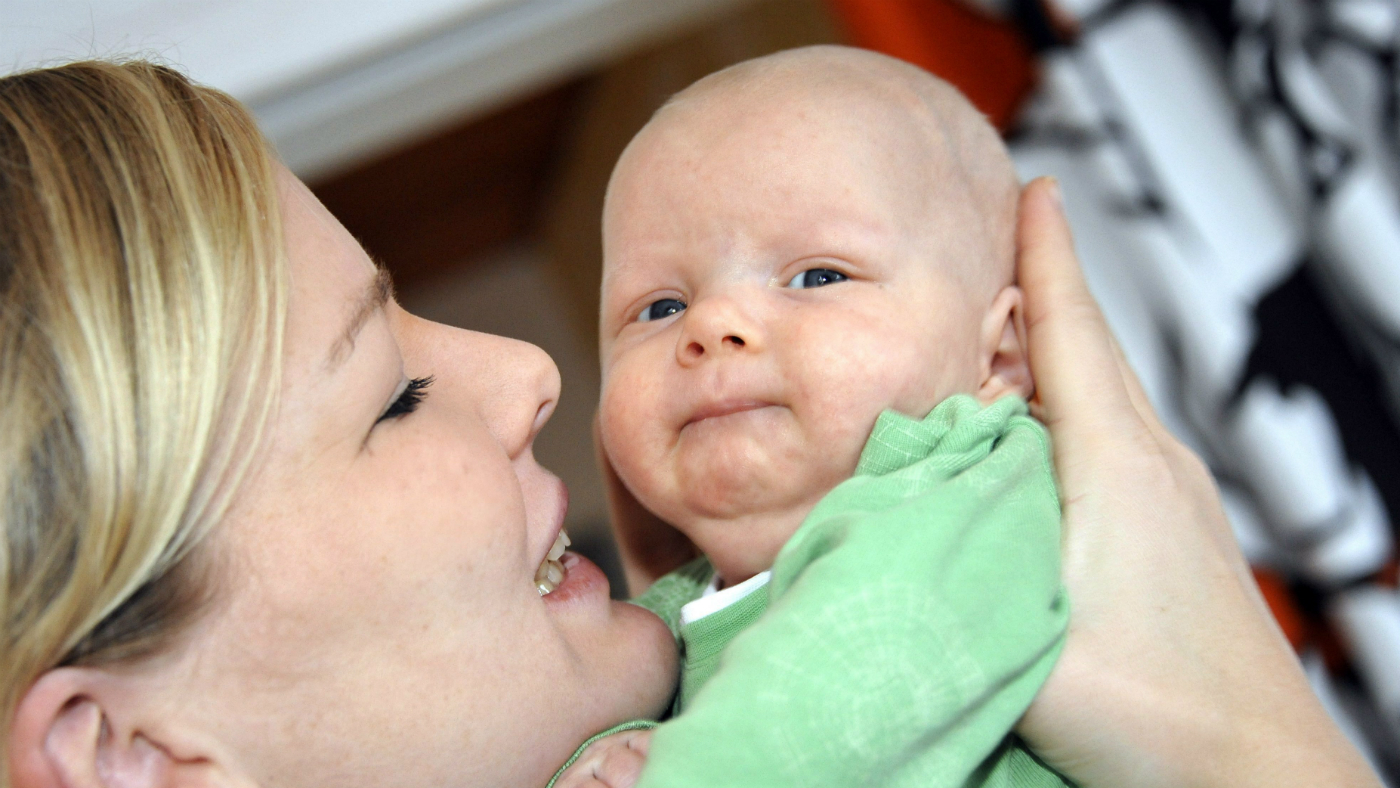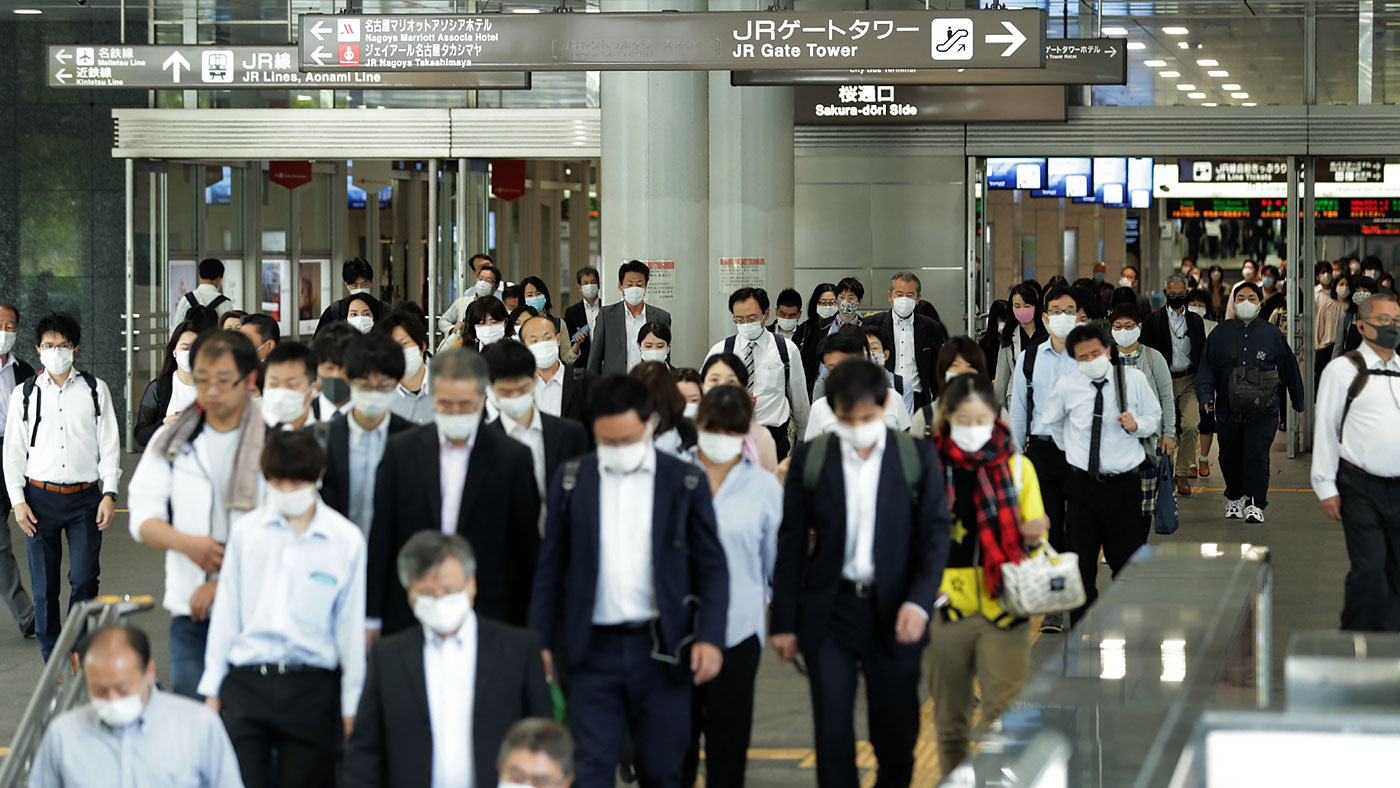What declining birth rates mean for our future
Global population now expected to peak in the 2080s and start declining by end of the century

A free daily email with the biggest news stories of the day – and the best features from TheWeek.com
You are now subscribed
Your newsletter sign-up was successful
The world’s population quadrupled in the 20th century due to high fertility rates and increasing life spans. But that upward trend is predicted to go into reverse by the start of the next century.
According to a July 2022 report from the United Nations, human population is expected to peak in the 2080s and start declining by 2100.
Evidence of this has already been seen in several countries. The US has seen birth rates decline 20% between 2007 and 2020. Even in China, where its one-child policy sought to halt a population explosion, the fertility rate now stands at 1.16, barely half the average of 2.1 births required to maintain its population level.
The Week
Escape your echo chamber. Get the facts behind the news, plus analysis from multiple perspectives.

Sign up for The Week's Free Newsletters
From our morning news briefing to a weekly Good News Newsletter, get the best of The Week delivered directly to your inbox.
From our morning news briefing to a weekly Good News Newsletter, get the best of The Week delivered directly to your inbox.
This raises questions about what is causing these issues and whether, ultimately, falling birth rates are the “demographic crisis” some commentators fear.
Why is it happening?
The pandemic knocked the birth rates for many countries. In 2020 the UK’s rate fell to 1.58 children per woman, the lowest since 2002. It also played a “major role” in the US having its slowest year of population growth in 2021, said The New York Times.
But this trend is also due to several long-term factors such as economic prosperity, lower infant mortality and greater gender equality. Further factors such as improved access to education and contraception suggest population decline could be seen as a sign of improved living standards.
But the decline of birth rates can also be attributed to a rising cost of living, said The Telegraph. The lack of affordable housing and cost of childcare has made having a child too much of a financial burden for many families.
A free daily email with the biggest news stories of the day – and the best features from TheWeek.com
One 27-year-old woman told The Telegraph that despite her and her partner taking home £70,000 a year combined, with rising bills “there is no way” she could have a child “without getting into debt”. These “barriers to parenthood”, said the Telegraph, are behind the increase in the average age a British woman has her first child – from 26.5 years old in 2000 to 29.1 in 2020.
What effect will it have?
A key concept in economics “is the more people you have, the more goods or services they can produce and the more they can consume – so population growth is the best friend of economic growth”, said the BBC.
An ageing population will instead result in fewer workers and an increased number of dependents. This could mean a “drain on resources”, said The Spectator. An example of this is Japan, where there is a “huge, low-skilled, ageing cohort which depresses savings and investment and slows economic growth”.
In the UK, declining birth rates could bring “all sorts of painful economic consequences”, said The Telegraph. With a shortage of younger people there will be less funds for pensions and, in addition, an ageing population will cause further strain on the NHS.
Changing birth rates “could lead to a hyper liberal future”, said Newsweek. A recent study of parenthood found that those who want to be parents or who already had children were more likely to hold conservative values.
These findings suggest “profound implications for the political landscape of the future” as global increases in childlessness could contribute to a process of liberalisation, according to the magazine.
What are governments doing about it?
Alarmed by falling birth rates, the Chinese government has released guidelines “to encourage fertility and reduce the nation’s abortions”, said The Spectator.
Singapore has also attempted direct action, employing a range of measures from a service offering advice about married life to a “baby bonus scheme”, whereby couples are offered cash to have second and third children.
In Poland, efforts are also being made to lower the financial burden for young parents. Since 2016, parents have been offered 500 zloty (£89) per child per month as part of the government’s family programme. However, after an initial boost, “the birth rate is roughly back to where it was”, noted The Telegraph.
Is it a cause for concern?
Billionaire Elon Musk recently tweeted: “Population collapse due to low birth rates is a much bigger risk to civilization than global warming.”
In the US, the National Review described a stalling population as “the death of hope” while The Washington Post called it a “blinking [warning] light ahead”.
However, projections on the impact of declining birth rates are often “unreliable”, said The New York Times. Estimates are “poorly equipped” to account for “technological and environmental shocks that could cause demographic swings” such as the growing impact of climate change.
As Daniel Moss explained on Bloomberg, while Japan has faced long-standing issues regarding an ageing population, GDP per capita has remained stable and unemployment is low.
“Despite the caricature of the country as an economic failure in the grip of terminal decline, life goes on,” he said.
-
 What to know before filing your own taxes for the first time
What to know before filing your own taxes for the first timethe explainer Tackle this financial milestone with confidence
-
 The biggest box office flops of the 21st century
The biggest box office flops of the 21st centuryin depth Unnecessary remakes and turgid, expensive CGI-fests highlight this list of these most notorious box-office losers
-
 What are the best investments for beginners?
What are the best investments for beginners?The Explainer Stocks and ETFs and bonds, oh my
-
 The science behind regrowing missing teeth
The science behind regrowing missing teethUnder the Radar A series of recent breakthroughs may offer those with dental issues something to chew on
-
 The best health care systems in the world
The best health care systems in the worldIn the Spotlight Getting sick has never felt better
-
 Martha's Rule: patients given right to urgent second opinion
Martha's Rule: patients given right to urgent second opinionThe Explainer Hospitals in England will launch new scheme that will allow access to a rapid treatment review
-
 The NHS at 75: can it make it to 100?
The NHS at 75: can it make it to 100?feature The NHS is facing almost unprecedented challenges, but support for the institution remains strong with the public
-
 Diamond Princess cruise ship, site of mass COVID outbreak, returns to service after nearly 3 years
Diamond Princess cruise ship, site of mass COVID outbreak, returns to service after nearly 3 yearsSpeed Read
-
 Arguments for and against calorie-count menus
Arguments for and against calorie-count menusPros and Cons Restaurants and cafes face controversial new rules for their menus
-
 Where have all the doctors and nurses gone?
Where have all the doctors and nurses gone?In Depth Health sector seeing a ‘breakdown’ in relationship between patients and medical professionals
-
 No lockdown, little testing, few deaths: why Japan is a coronavirus outlier
No lockdown, little testing, few deaths: why Japan is a coronavirus outlierIn Depth Only 744 people have died in country of 126 million - and infection rate is falling